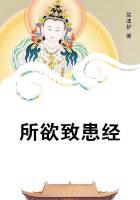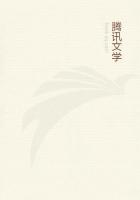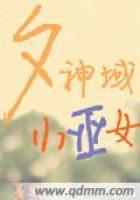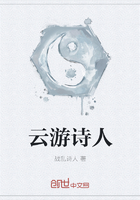Mr. Southey has not been fortunate in the plan of any of his fictitious narratives. But he has never failed so conspicuously as in the work before us; except, indeed, in the wretched Vision of Judgement. In November 1817, it seems the Laureate was sitting over his newspaper, and meditating about the death of the Princess Charlotte. An elderly person of very dignified aspect makes his appearance, announces himself as a stranger from a distant country, and apologises very politely for not having provided himself with letters of introduction. Mr. Southey supposes his visitor to be some American gentleman who has come to see the lakes and the lake-poets, and accordingly proceeds to perform, with that grace, which only long practice can give, all the duties which authors owe to starers. He assures his guest that some of the most agreeable visits which he has received have been from Americans, and that he knows men among them whose talents and virtues would do honour to any country. In passing we may observe, to the honour of Mr. Southey, that, though he evidently has no liking for the American institutions, he never speaks of the people of the United States with that pitiful affectation of contempt by which some members of his party have done more than wars or tariffs can do to excite mutual enmity between two communities formed for mutual fellowship. Great as the faults of his mind are, paltry spite like this has no place in it. Indeed it is scarcely conceivable that a man of his sensibility and his imagination should look without pleasure and national pride on the vigorous and splendid youth of a great people, whose veins are filled with our blood, whose minds are nourished with our literature, and on whom is entailed the rich inheritance of our civilisation, our *******, and our glory.
But we must return to Mr. Southey's study at Keswick. The visitor informs the hospitable poet that he is not an American but a spirit. Mr. Southey, with more frankness than civility, tells him that he is a very queer one. The stranger holds out his hand. It has neither weight nor substance. Mr. Southey upon this becomes more serious; his hair stands on end; and he adjures the spectre to tell him what he is, and why he comes. The ghost turns out to be Sir Thomas More. The traces of martyrdom, it seems, are worn in the other world, as stars and ribands are worn in this. Sir Thomas shows the poet a red streak round his neck, brighter than a ruby, and informs him that Cranmer wears a suit of flames in Paradise, the right hand glove, we suppose, of peculiar brilliancy.
Sir Thomas pays but a short visit on this occasion, but promises to cultivate the new acquaintance which he has formed, and, after begging that his visit may be kept secret from Mrs. Southey, vanishes into air.
The rest of the book consists of conversations between Mr. Southey and the spirit about trade, currency, Catholic emancipation, periodical literature, female nunneries, butchers, snuff, bookstalls, and a hundred other subjects. Mr. Southey very hospitably takes an opportunity to escort the ghost round the lakes, and directs his attention to the most beautiful points of view. Why a spirit was to be evoked for the purpose of talking over such matters and seeing such sights, why the vicar of the parish, a blue-stocking from London, or an American, such as Mr. Southey at first supposed the aerial visitor to be, might not have done as well, we are unable to conceive. Sir Thomas tells Mr. Southey nothing about future events, and indeed absolutely disclaims the gifts of prescience. He has learned to talk modern English. He has read all the new publications, and loves a jest as well as when he jested with the executioner, though we cannot say that the quality of his wit has materially improved in Paradise. His powers of reasoning, too, are by no means in as great vigour as when he sate on the woolsack; and though he boasts that he is "divested of all those passions which cloud the intellects and warp the understandings of men," we think him, we must confess, far less stoical than formerly. As to revelations, he tells Mr. Southey at the outset to expect none from him. The Laureate expresses some doubts, which assuredly will not raise him in the opinion of our modern millennarians, as to the divine authority of the Apocalypse. But the ghost preserves an impenetrable silence. As far as we remember, only one hint about the employment of disembodied spirits escapes him. He encourages Mr. Southey to hope that there is a Paradise Press, at which all the valuable publications of Mr. Murray and Mr. Colburn are reprinted as regularly as at Philadelphia; and delicately insinuates that Thalaba and the Curse of Kehama are among the number. What a contrast does this absurd fiction present to those charming narratives which Plato and Cicero prefixed to their dialogues! What cost in machinery, yet what poverty of effect! A ghost brought in to say what any man might have said! The glorified spirit of a great statesman and philosopher dawdling, like a bilious old nabob at a watering-place, over quarterly reviews and novels, dropping in to pay long calls, ****** excursions in search of the picturesque! The scene of St. George and St. Dennis in the Pucelle is hardly more ridiculous. We know what Voltaire meant. Nobody, however, can suppose that Mr. Southey means to make game of the mysteries of a higher state of existence. The fact is that, in the work before us, in the Vision of Judgement, and in some of his other pieces, his mode of treating the most solemn subjects differs from that of open scoffers only as the extravagant representations of sacred persons and things in some grotesque Italian paintings differ from the caricatures which Carlile exposes in the front of his shop. We interpret the particular act by the general character. What in the window of a convicted blasphemer we call blasphemous, we call only absurd and ill-judged in an altar-piece.

